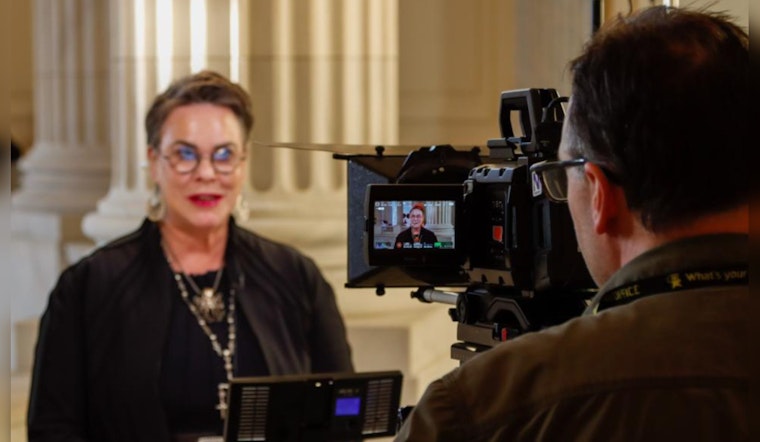
As the deadline for filing 2023 taxes looms, the Internal Revenue Service's adoption of an artificial intelligence system is under scrutiny. Lawmakers are sounding the alarm on privacy concerns and potential spying. According to a CBS News Detroit report, House Republicans suspect the IRS and the Department of Justice of snooping through millions of Americans' private financial lives without a warrant, thanks to this AI-powered tech.
Initiating an investigation into these claims, the House Judiciary Committee wants answers as to whether the IRS's use of AI to sift through bank records encroaches on the constitutional rights of citizens. Jim Jordan, R-Ohio, and Rep. Harriet Hageman, R-Wyo., fired off a letter to Treasury Secretary Janet Yellen, demanding documents. The inquiry follows concerns about the FBI obtaining bank records without proper legal authorization, including those linked to Jan. 6 suspects, told Just the News by Hageman.
Caught in an undercover tape, an IRS employee hinted at a broad surveillance operation potentially flouting constitutional guidelines. The congressional probe was ignited by the IRS's announcement last September that it would use AI to catch tax cheats and track compliance risks. It led to an acknowledgment from the Treasury Department about AI being deployed to fight check fraud.
Using their letter, Jordan and Hageman expressed concern that the IRS and DOJ are actively monitoring Americans without a warrant, raising "serious doubts about the IRS's—and the federal government's—respect for Americans' fundamental civil liberties." The letter also requested a transcribed interview with IRS official Alex Mena from the Criminal Investigations Unit, who purported on tape that the IRS could see "the amount" in every American's bank account using the new AI system, as per the congresswoman and congressman's letter.
The AI in question identifies patterns within taxpayer data to prevent fraud, a capability already in use in other financial sectors, said AI researcher Dan Faggella in a CBS News Detroit interview. Faggella noted the critical policy question revolves around whether the data being drawn upon was "never granted by the citizens or is in some way against the law." While some fear this technological advancement, Faggella believes acceptance is inevitable and suggests a broader international vision for AI development is necessary.



-2.webp?w=1000&h=1000&fit=crop&crop:edges)





